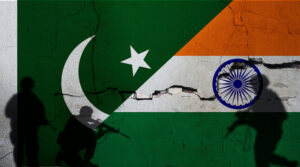🔥 Recent Escalation and Ceasefire
On April 22, a terrorist attack in Pahalgam, Jammu and Kashmir, resulted in the deaths of 27 individuals, including 25 Hindu tourists. The Resistance Front (TRF), believed to be linked to the Pakistan-based group Lashkar-e-Taiba, claimed responsibility. India responded with “Operation Sindoor,” targeting alleged terrorist infrastructure in Pakistan. Pakistan reported civilian and military casualties, while India reported losses on its side as well. A U.S.-brokered ceasefire was announced on May 10, but both nations have accused each other of subsequent violations. AP News+2Wikipedia+2The Times of India+2AP News
🛰️ Cyber Warfare and Operation Sindoor
Concurrently, India faced significant cyberattacks from state-backed hackers and hacktivists from Pakistan and allied countries. These attacks targeted key infrastructure, including defense, transportation, and financial sectors. Indian cyber defenses managed to prevent major damage, but the incidents highlighted the growing cyber threat landscape. The Times of India
✈️ Military Engagements and Foreign Involvement
During the conflict, Pakistan reportedly used Chinese-made J-10C fighter jets and PL-15 missiles, marking the first known combat use of these systems. India presented evidence of Pakistan’s use of Chinese and Turkish weaponry, raising concerns about foreign involvement in the region’s conflicts. The Guardian+1Navbharat Times+1
🌊 Water Disputes and Environmental Concerns
In response to the Pahalgam attack, India suspended the Indus Waters Treaty, leading to unannounced water releases from dams, causing flooding in parts of Pakistan. This action intensified existing water disputes and raised environmental concerns. Wikipedia+1Wikipedia+1
🌡️ Heatwave Crisis
Both countries are currently experiencing an extreme heatwave, with temperatures reaching up to 48°C. The heatwave has caused fatalities and poses significant health risks, further straining resources and infrastructure. Wikipedia
🕊️ International Reactions and Diplomatic Efforts
The international community has urged both nations to exercise restraint and engage in dialogue. Countries like Bangladesh, China, Egypt, the European Union, and the United Kingdom have welcomed the ceasefire and offered support for peaceful resolutions. Wikipedia+1Reuters+1Wikipedia
🔮 Outlook
While the ceasefire has temporarily halted active hostilities, underlying issues such as terrorism, cyber threats, and resource disputes remain unresolved. Continued diplomatic engagement and confidence-building measures are essential to prevent further escalation and promote lasting peace in the region.








